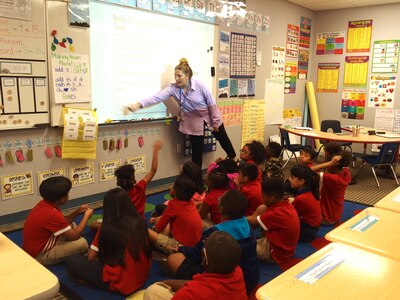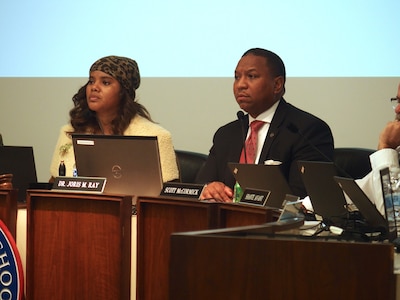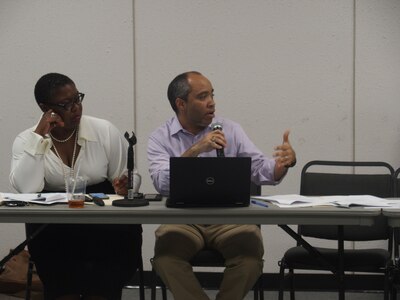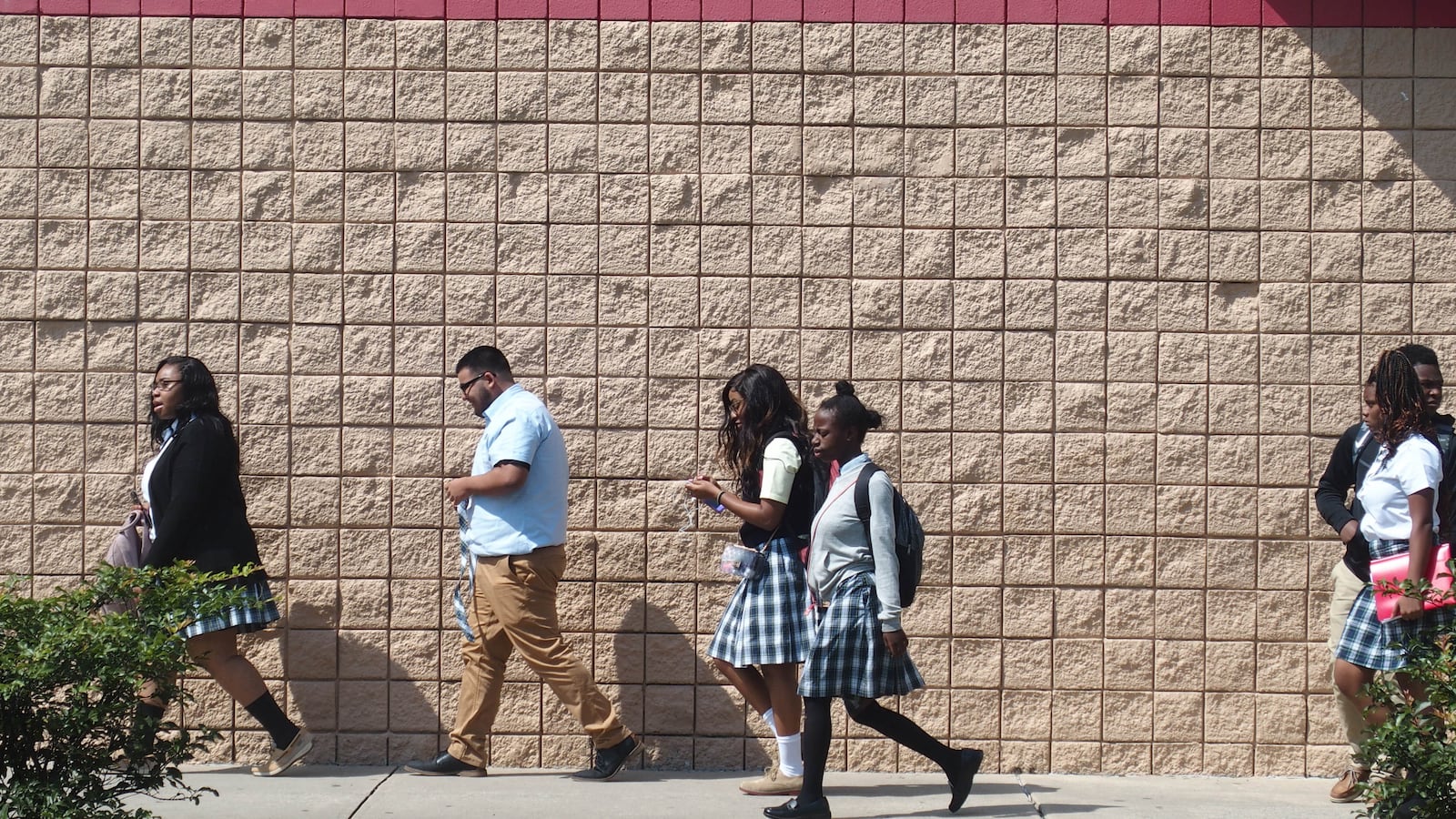Though a new Shelby County Schools charter school policy addresses many of the questions charter leaders had about operating in the district, the policy’s implementation has already dug up old feelings of distrust, setting the stage for a tension-filled year.
District leaders have both incentivized high-performing charter schools to improve student academic performance, and at the same time, sought to stymie their growth as students and their related funding have left the district’s coffers.
And while the state has urged the district to create clearer rules, it’s unclear how far it will let Memphis school leaders use its state-given tools to limit or control charter schools.
The board will have plenty of charter school issues to sort through in 2020 under the new policy, including decisions on whether to renew seven schools as their 10-year contracts expire, allow charter schools to move into areas that may be deemed “saturated,” and form a new “charter partnership council” of district and charter leaders to monitor progress and provide feedback as the policy unfolds.
That’s on top of normal duties such as reviewing new charter school applications, investigating allegations of wrongdoing, and initiating improvement plans for schools that score low on the district’s report card.
The new charter school policy the school board approved over the summer was the first update in eight years and significantly increased accountability. It touches on issues ranging from charter revocation to when schools can accelerate their student enrollment to sharing school services such as therapists, professional training, or textbooks.

Some effects were immediate. The board’s requirement to consider student enrollment needs in a particular neighborhood before approving another charter school resulted in only one new school approved for next fall.
The stricter policy, which was supported with input from charter school advocates, was jarring for longtime charter leaders who questioned the new strategies and data the district used. When Shelby County Schools considered forcing eight charter schools to scale back enrollment based on how other schools in their networks were performing, Yetta Lewis, the CEO of Gestalt Community Schools, objected, saying the policy was “flawed” and the transition was not clearly communicated.
“This policy objective is to stop our growth by any means necessary,” she wrote in an email to staff.
Related: Memphis charter network appeals decision to shrink enrollment
Under the new policy, the district also sought to stop Memphis Business Academy, one of the oldest charter operators in the city, from expanding three of its schools outside the scope of their contract. The school board allowed for only one to expand, because the district scored the academy poorly on state test results, academic growth, financial health, out-of-school suspension rates, among other things.
But the network’s CEO, Anthony Anderson, said he and his team have questioned the calculations the district used. For example, the state measures out-of-school suspensions by the number of students suspended while the district counts the number of suspensions, according to a video of Anderson and district officials discussing the school’s score. If a student is suspended more than once, the school’s number — even for district-run schools — will appear larger than the state’s calculation for suspensions. Anderson argued the district’s calculation unfairly penalizes schools.

Superintendent Joris Ray sympathized with some of the concerns, such as judging the future of one a school based on the overall performance of other schools in the network, but likened some of the other complaints to parenting a teenager who often breaks the rules.
“If I say to my son he can’t stay out past midnight, he’ll stay out past midnight. I expect that everyone comply with their contract,” Ray told board members during a December meeting. “I don’t take lightly anyone trying to circumvent this board and operate as they see fit.”
And some school board members said charter leaders should have read the new policy more carefully and asked the district for clarity rather than blame the district for the disruption.
“I think it’s incumbent upon these charter school operators as well to do their own due diligence, read their contracts, adhere to their contracts, and when [policy] updates are made, to read them,” said board member Michelle McKissack last month before voting to deny some charter schools’ requests.
After seeing the policy’s first big test play out, school board chairwoman Miska Clay Bibbs told Chalkbeat the board will possibly tweak the policy to make sure the district administration and school board agree on it.
“Hopefully we’ll be able to come to a better thought around what that looks like for both of us,” she said.
Until now, the district’s lax oversight of charter schools has meant charter operators are mostly on their own with little accountability. That has slowly changed in recent years as the district doubled the number of people overseeing charter schools from three to six and conducted more investigations into wrongdoing by charter schools.
“When practice goes unchecked, they assume that that’s policy,” said board member Kevin Woods at a board meeting last month.
Tikeila Rucker, president of United Education Association of Shelby County, one of two teacher associations in Memphis, said scrutiny toward charter schools has seemed arbitrary depending on board or administration sentiment at the time.
“My first concern is: how did it go this far, this long?” without clearer policies, she said. “That is taking away funding from Shelby County Schools, so surely we don’t want them to be going to a school that is underperforming.”
In Tennessee, school districts oversee charter schools, privately managed nonprofits funded by taxpayers. The first charter schools in the state opened in Memphis nearly two decades ago in an effort to improve student academics through greater flexibility in how they run schools, mostly out of district control. In exchange for autonomy, charter schools faced more accountability for results.
About 18,000, or 14%, of Shelby County Schools students attend a charter school. The state oversees another two dozen charter schools in Memphis. Academic performance among the 57 under Shelby County Schools vary — charter high schools tend to post higher test scores than district-run ones, while the opposite is true for elementary and middle schools, according to the district’s annual report.

The new policy, created by a group of about two dozen district, charter, and community leaders over two years, is the “natural evolution” of a maturing charter school sector, said Terence Patterson, the CEO of Memphis Education Fund and a future member of Tennessee’s new commission that will hear charter school appeals. (Memphis Education Fund supports Chalkbeat.)
“Ten years ago we only had a handful of charter schools. The focus was less on quality and it was more on choice,” said Patterson, who once oversaw the development of new charter schools in Chicago Public Schools. “We’re now evolving as a market where we have a greater choice. Not just growing the choice, but the high-quality choice options.”
Cardell Orrin, the Memphis leader of education advocacy organization Stand for Children who helped facilitate the new charter school policy, said it shows the district and charter leaders are “working together” more than they have in the past, despite the tension.
“We’ve gone from the Wild West and everyone for themselves and build relationships in the district with whoever you can, to where we are now with clear policies,” he said.
The work was partially spurred by a national organization’s report nearly four years ago that called out significant deficiencies in Shelby County Schools’ charter oversight. That same year as budget discussions for the cash-strapped Memphis district were underway, Shelby County Schools sought to close six low-performing charter schools — and gave them 13 days notice of the board’s vote. Three were ultimately spared.
The other three charter schools appealed their cases to the state Board of Education clamoring for clearer rules. While state board members agreed the schools’ performance was dismal, they chastised the state’s largest school system for not having a clear process for closure in place.
Still, the state has already criticized some of the district’s new tactics.
In November, the state Board of Education reversed the school board’s decision to reject a charter school based on where it wanted to locate. District leaders said there are nearly 700 more classroom seats than students in schools in the neighborhood, which would make the charter school — and the district-run ones nearby — less sustainable. Since funding is determined by student enrollment, each school needs a critical mass of students to provide necessary resources. But the charter school founder argued the district’s own reporting showed that the nearby schools aren’t serving students well, implying that they may flock to the new school if it posts relatively higher scores.
The state board agreed with the charter school, which is now set to open next fall.

